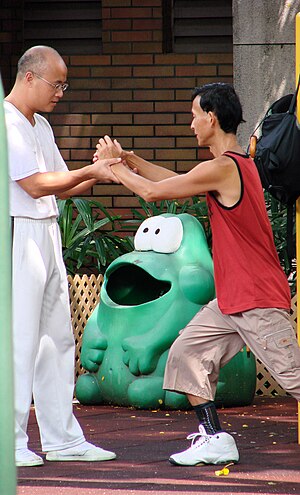
Ruth E Taylor-Piliae and Bruce M Coull of the College of Nursing, University of Arizona, USA examined the safety and feasibility of a 12-week Tai Chi intervention among stroke survivors.
Two-groups were formed in an outpatient rehabilitation facility. The subjects were stroke survivors ≥50 years of age and at ≥three months post-stroke.
The Tai Chi subjects attended group-based Yang Style classes three times/week for 12-weeks, while Usual Care subjects received weekly phone calls along with written materials/resources for participating in community-based physical activity.
Indicators of study safety and feasibility included recruitment rates, intervention adherence, falls or adverse events, study satisfaction, drop-outs, and adequacy of the outcomes measures.
The results of the study were that interested persons pre-screened by phone (n = 69) were on average 68 years old, (SD = 13) years old, 48% (n = 33) women, 94% (n = 65) were at least three months post-stroke. A total of 28 subjects aged 69 (SD = 11) years enrolled in this pilot study. Intervention adherence rates were very high (≥92%). There were no falls or other adverse events. The dose of Tai Chi exercise (≥150 minutes/week) was well tolerated. Overall study satisfaction was high (8.3 (SD = 1.9); 1 = not satisfied, 10 = most satisfied), while drop-outs (n = 3, 11%) were unrelated to study intervention. Score distributions for the outcome measures were approximately normal, sensitive to change, and seemed to favor the Tai Chi intervention.
The conclusions reached were that Tai Chi is a safe, community-based exercise program for stroke survivors. Our data suggest that recruitment and retention of an adequate sample is feasible, and that in a full-scale study 52 subjects/group are needed to detect statistically significant between group differences (alpha = 0.05, power = 0.80).
Exercise programs that include the Tutor system can enhance the recovery of victims of stroke, head, brain and spinal injuries, Parkinson’s disease, CP, MS, and other disabilities.
The HandTutor, ArmTutor, LegTutor and 3DTutor are devices that are FDA and CE certified and are being used in leading U.S. and foreign hospitals. They have had success in improving movement of the hand, wrist, elbow, knee, ankle, foot and other joints of the body following traumatic injuries. Intensive active exercise can reduce the rate of deterioration and this is what the ”Tutor” devices provide.
The system is also used in physical therapy clinics as well as the patient’s home with tele rehabilitation. The ”Tutors” are suitable for adults and children.
No comments:
Post a Comment